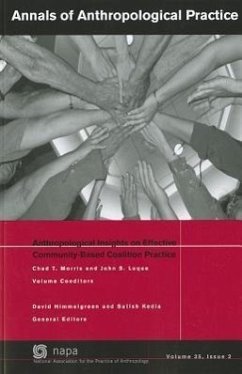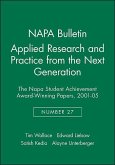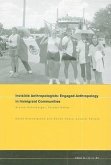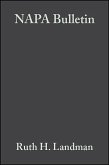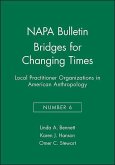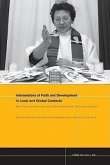The team coalition has become an increasingly common part of the practicing anthropologist's lexicon. Today, anthropologists frequently utilize coalition formation as a tool for achieving positive, sustainable community change and conducting commonly-based research. In this issue of Annals of Anthropological Practice, authors critically examine factors influencing coalition participation, dispelling the notion that the coalition process itself ensures diversity, while offering concrete examples of how participatory diversity might be achieved. Anthropologists examine the complex intersection of roles they and others find themselves assuming as academic researchers, educators, concerned community members, advocates for marginalized populations, and representatives of the scientific community in community-based coalition practice. Also woven into this volume is a clear depiction of contemporary methods and theories in anthropological community coalition and partnership research. Throughout the volume contains examples of coalition program and strategies that will be of use to coalition practitioners across locations and disciplines.

